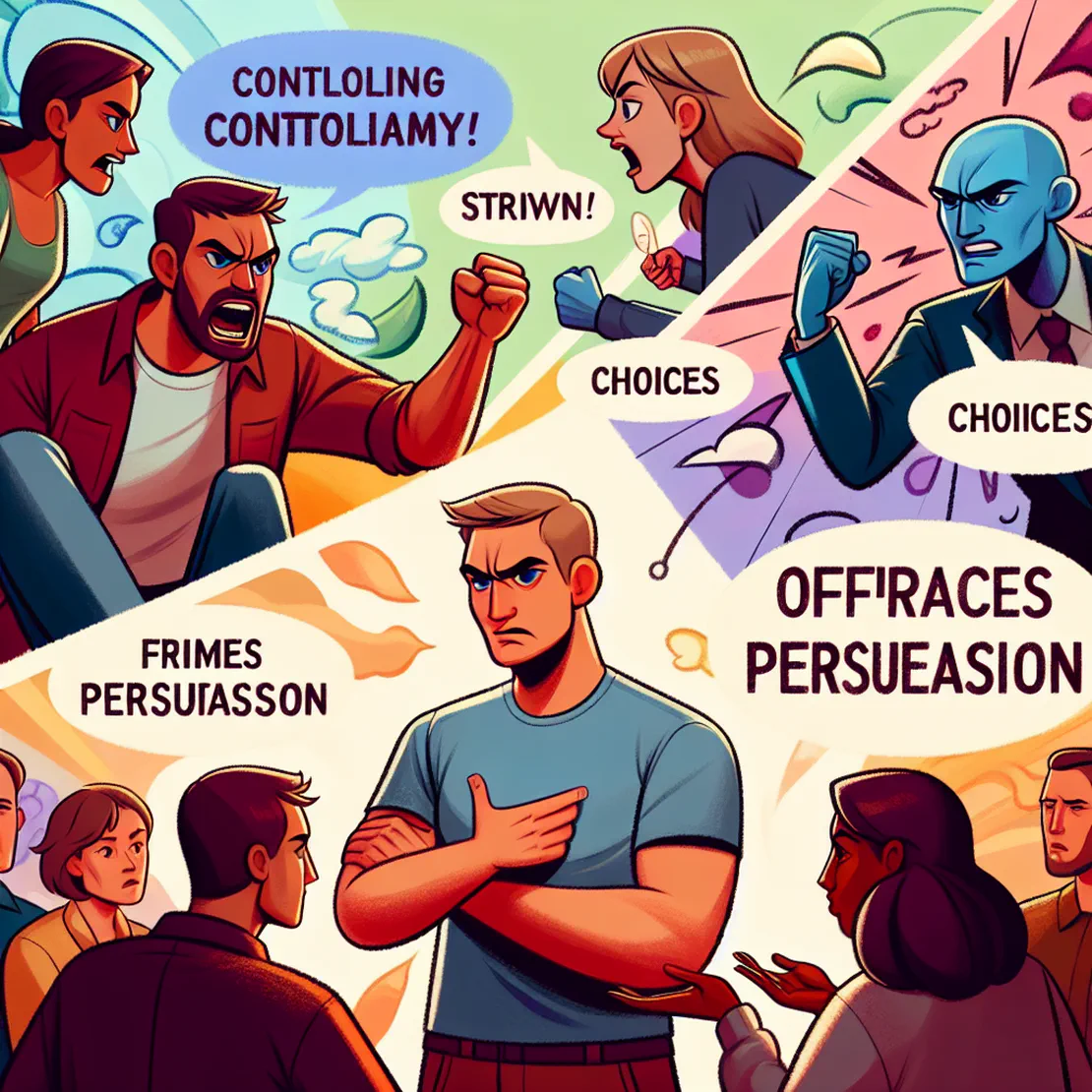
You're Not the Boss of Me!
- Hidden Brain
- Education
- August 12, 2024
Table of Contents
At a Glance
-
Reactance and Persuasion - “And so the result, hopefully, is that they won’t become reactant.” Understanding reactance and how to avoid it in persuasive messaging is crucial for effective communication.
-
Leveraging Psychological Reactants - “What if we make the thing that we want people not to do the source of the freedom threat?” Exploring the concept of using reactance for positive outcomes, like supporting clean air policies.
-
Learning from Others - “Other people can provide us with tools, expertise, and insight in calculably valuable assets in any life.” Emphasizing the importance of tapping into the wisdom of others for personal growth and development.
-
Road Rage Incident - “I’m beyond limit at this point. I’m freaking out and my roommates basically say, dude, chill out.” A humorous yet insightful anecdote about managing emotions in tense situations.
What to Do
-
Listen to others who know more than you and learn from them - By listening to those with more knowledge and experience, you can gain valuable insights and wisdom that can help you make better decisions and improve various aspects of your life.
-
Frame requests or advice in the context of a story rather than as instructions - Using narratives can be a more subtle form of persuasion that can reduce reactance in others, making them more receptive to the message being conveyed.
-
Offer people choices to reduce reactance - Giving people options and choices can help them feel more autonomous and less resistant to requests or advice, ultimately increasing the likelihood of compliance.
-
Use low-controlling language to support people’s autonomy - Avoiding strong mandates and instead presenting recommendations as suggestions can empower individuals to make their own decisions, fostering a sense of autonomy and reducing reactance.
What to Get
-
Zinc Oxide Sunscreen - Amazon - To protect people from skin cancer
-
Protective Clothing - To protect people from skin cancer
-
Parenting Books - Recommended giving children closed options for decision making
Summary
In this episode of Hidden Brain, psychologist Benjamin Rosenberg discusses the concept of reactance, which is the psychological tendency for individuals to resist or reject information that threatens their sense of autonomy. He shares a personal anecdote about a road rage incident and how he learned to manage reactance in his own interactions. Rosenberg explains how storytelling can be a powerful tool to reduce reactance in persuasive messages. By embedding persuasive messages within a narrative that engages the audience and allows them to identify with the characters, individuals are less likely to perceive the message as a threat to their autonomy.
Rosenberg also discusses a unique approach to leveraging reactance for good, known as reverse psychology. He describes a study where researchers framed secondhand smoke as a threat to freedom, leading individuals to support clean air policies as a way to regain their autonomy. This innovative approach challenges traditional notions of reactance and demonstrates how reframing messages can influence behavior in a positive way.
Overall, the episode highlights the importance of understanding reactance in communication and persuasion. By being mindful of how messages are framed and incorporating storytelling techniques, individuals can effectively communicate ideas without triggering resistance. Rosenberg’s insights offer valuable strategies for navigating interpersonal interactions and promoting positive behavior change.


